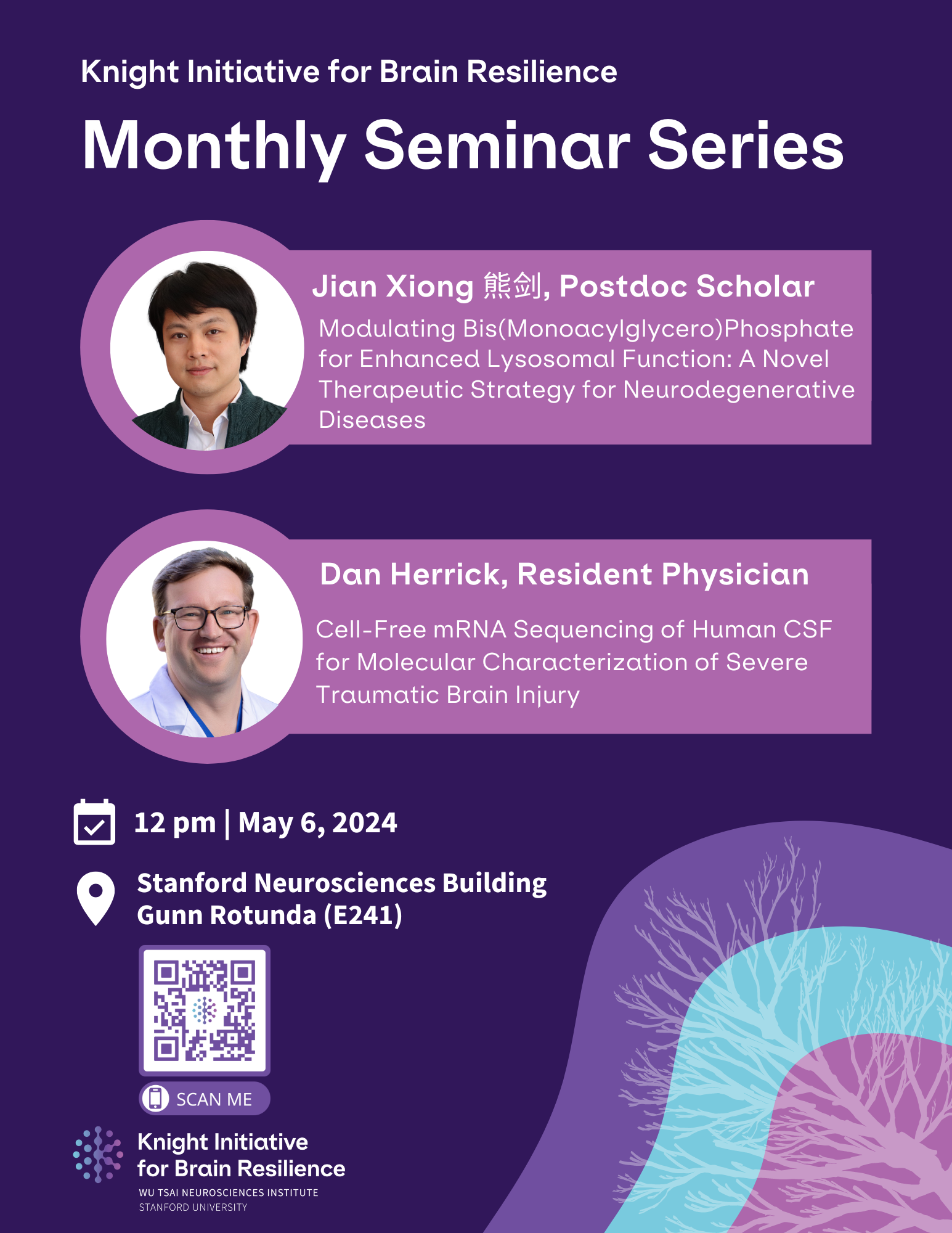Event Details:

The first Monday of each month, the Knight Initiative for Brain Resilience will host monthly seminars to bring together awardees, affiliated professors and students for a series of 'lab meeting' styled talks. Two speakers will discuss their brain resilience research, experiences in the field, and answer questions about their work.
To support our researchers' participation in this open science ‘lab-meeting style’ exchange of ideas, these seminars are not streamed/recorded and are only open to members of the Stanford community.
Jian Xiong, Stanford University
Modulating Bis(Monoacylglycero)Phosphate for enhanced lysosomal function: A novel therapeutic strategy for neurodegenerative diseases
Bis(monoacylglycero)phosphate (BMP) lipids are a specialized class of phospholipids that reside almost exclusively within the lysosomes. These lipids play a crucial role in maintaining proper endosomal and lysosomal function in the brain. Alterations in BMP levels and composition have been linked to the pathogenesis of several neurodegenerative diseases, including Batten's disease, Niemann-Pick disease type C (NPC1), Frontotemporal Dementia (FTD), and Alzheimer's disease (AD).
The present study aims to leverage the understanding of BMP lipid biology as a therapeutic strategy to mitigate the pathology of neurodegeneration in both juvenile and aging-dependent neurodegenerative diseases, such as Batten's disease, NPC1, and FTD. The researchers have discovered the key mechanisms governing the synthesis and degradation of BMP lipids. By modulating these regulatory pathways, they were able to manipulate BMP levels in cellular models and observed improvements in the disease phenotypes.
The long-term goal of this project is to further elucidate the precise role of BMP lipids in the onset and progression of juvenile and age-related neurodegenerative disorders. We aim to leverage this knowledge to develop novel therapeutic strategies that target the BMP lipid metabolism, with the ultimate goal of mitigating the devastating effects of these neurological conditions.
Dan Herrick, Stanford University
Cell-Free mRNA sequencing of human CSF for molecular characterization of severe traumatic brain injury
Current methods of characterizing severe traumatic brain injury (sTBI) are limited, limiting advancements of sTBI treatment and prognostication. CSF TBI biomarker research has focused on protein and microRNA due to their stability and ease of isolation. In comparison, messenger RNA (mRNA) holds great potential to detail the heterogeneous molecular landscape of sTBI. Towards this end, our group is isolating and analyzing cell-free mRNA (cfRNA) from CSF of individual sTBI patients using next-generation sequencing. We will present preliminary data from the initial patients in our first-in-human pilot study sequencing cfRNA isolated from small volumes of individual sTBI patient CSF and also discuss future directions.
